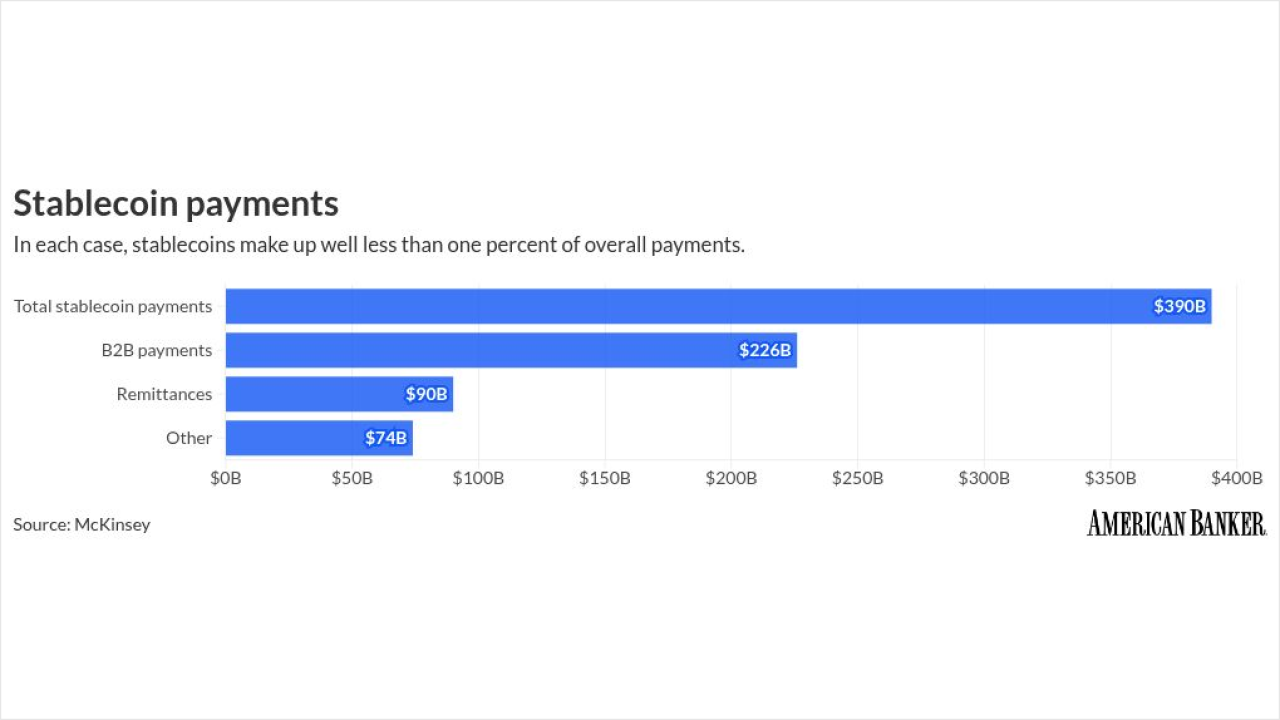WASHINGTON — A fight is brewing over whether and how much national banks and thrifts must comply with state laws designed to delay or prevent foreclosures.
Unlike consumer protection laws, state foreclosure and real estate property laws generally are not preempted. But if such a law affects the substance of a loan — or interferes with the bank's ability to collect a debt — the issue becomes murkier.
That discord has left national banks and thrifts struggling to know what terms they must follow as a growing number of states consider or pass foreclosure prevention laws. It also is likely to start a new front in the war over preemption, observers said.
"It could open a whole new can of worms, and the banking industry may be defending attacks on preemption that may be arising in a much more sympathetic arena than previous preemption issues," said V. Gerard Comizio, a partner at the corporate department at Paul, Hastings, Janofsky & Walker LLP.
To date only Maryland has passed a foreclosure prevention law, but seven other states have such bills pending. In theory, at least, most of these bills would not be preempted by the Office of the Comptroller of the Currency or the Office of Thrift Supervision, regulators said.
"Traditionally, at least from OTS' perspective, the basis for a foreclosure is found in a contract," said John Bowman, the agency's chief counsel. "Contracts are usually governed by state law."
But state proposals on foreclosure are seldom that cut and dry. Several have relatively long periods of time delaying a foreclosure or tack on other elements that would affect the business workings of banks and thrifts — something that then could be preempted.
"You could have a statute intended to impact A when in fact it's application actually impacts A, B, C, D, E, and F in legal proceedings," Mr. Bowman said. "So I wouldn't want to say absolutely that a statute denoted as a foreclosure statute is not preemptable."
At issue is how far the statute would go. For example, Maryland's law, which Gov. Martin O'Malley signed this month, instituted a five-month moratorium on foreclosures. It is unclear whether federal regulators could preempt the law. Industry representatives said they are largely willing to accept a brief delay in foreclosures, since a limited 30-day stay would be hard to challenge legally, though indefinitely delaying foreclosures or banning them altogether would be unacceptable.
"The time and circumstances you're seeing now extending another 30 or 40 days — that does not disrupt the market as much as a year or some other proposals we've seen," said Paul Richmond, vice president for state government affairs for the Mortgage Bankers Association.
Several states are contemplating bills that would go beyond Maryland's measure. Those being considered in Connecticut and New Jersey would let borrowers obtain a six-month delay on foreclosures. New York and Michigan are considering legislation calling for a yearlong moratorium.
Some of these measures would go further than delaying foreclosures and include changes to a loan's terms or underwriting standards — provisions that are more easily preempted by federal regulators.
The state measure causing the industry the most angst is a Minnesota one that, in addition to allowing a year delay in foreclosure proceedings, would allow a struggling borrower to make monthly payments equal to the minimum monthly payment when the loan was originated or 65% of the monthly payment at the time of the default, whichever is smaller.
Many industry representatives say that would be going too far, since it would affect how a bank can do business — a criteria that more clearly falls under preemption power.
"There comes a point where states and localities are using foreclosure laws as a pretext or to impair the enforceability of lawful loans, and that's the point where preemption may come back into the picture," said Laurence Platt, a lawyer at Kirkpatrick & Lockhart Preston Gates Ellis LLP. "A little bit of breathing room for the borrower is not going to trigger preemption, but if they in fact choke the lender to death by effectively declaring the loan unenforceable with its terms, that will trigger constitutional and preemption issues."
The OCC and the OTS have largely remained mum on the issue. The OCC would not make someone available for this article, but it warned in its 2004 preemption rule that it may preempt foreclosure laws that hide other provisions.
"Laws related to the transfer of real property may contain provisions that give borrowers the right to 'cure' a default upon acceleration of a loan if the lender has not foreclosed on the property securing the loan," the rule said. "Viewed one way, this could be seen as part of the state laws governing foreclosure, which historically have been within a state's purview. However, as we concluded in the OCC Determination and Order … to the extent that these type of law limits the ability of a national bank to adjust the terms of a particular class of loans once there has been a default, it would be a state law limitation."
Many lawyers said the regulatory silence is not surprising. Many institutions fear challenging a state foreclosure law, even if parts of it could be preempted, and lawmakers have criticized regulators, particularly the OCC, for preempting state consumer protection laws.
"If someone is going to take an aggressive stance regarding preemption, the concerns are reputational risk in front of the public for taking the legal position, and the the legal risk that ultimately the claimed preemption is either not found to be valid or the validity of the foreclosures are then called into question," said Joe Lynyak, a partner at Buckley Kolar LLP. "This is really right at the edge of the battle on preemption and is a very, very complicated analysis."
Matthew Street, the American Bankers Association's deputy general counsel for state relations, said it is not surprising that federal regulators have not stepped in to discuss preemption, because not enough states have passed foreclosure-related laws yet.
"Federal agencies are extremely careful how they use that power," Mr. Street said. "They don't want to be seen as throwing their weight around in terms of the states. Mortgages are contract law, but at some point there is a larger federal interest."
In addition, state regulators are poised to fight for their laws.
New York State Banking Superintendent Richard Neiman said he was confident the legislation under consideration in his state would be protected. "The proposed changes to the foreclosure process, such as a required pre-foreclosure notice, would not be subject to federal preemption, since access to the judicial process is governed solely by state law."
Most observers agree state foreclosure laws are likely to continue proliferating unless broader federal legislation is passed. "There is certainly a trend at the state and local level," said Gil Schwartz, a former Federal Reserve Board attorney and now a partner at Schwartz & Ballen LLP. "If legislation isn't going to do it and deal with it at the federal level, states and local jurisdictions are taking actions to slow foreclosures down."





